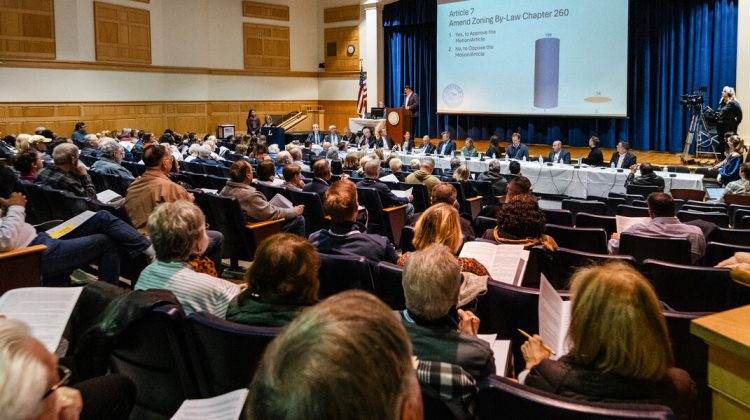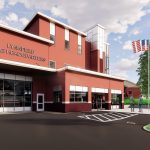LYNNFIELD — Lynnfield had it’s Town Meeting Monday night, resolving 14 warrant articles. Of particular importance to Town officials were the two articles related to accessory dwelling unit bylaws, Articles 7 and 8. Both articles were passed by a strong majority. All other articles were also passed, except for Articles 13 and 14, which were citizen petitions and were withdrawn by the petitioner during the meeting.
An ADU is either attached or in a separate structure, 900 sq. ft. or fewer, located on land that already has a primary dwelling on it. They are essentially additional apartments on plots that are zoned for single residences.
Last year, the state legislature voted to create a right to build ADUs in single residential zoning areas and limited the ability of towns and municipalities to regulate them. Warrant articles 7 and 8 roll these by-right ADUs into the existing site-planning process and put in place the limited regulations allowable by state law.
Article 7 contains the brunt of the regulations. It limits the number of ADUs allowed on parcels in Lynnfield to a single ADU and requires the septic system for a given parcel to support the overall number of bedrooms on the parcel (both in the primary dwelling and the ADU). It also establishes setbacks for accessory structures in-line with existing setback requirements and requires that the ADU “minimizes tree, vegetation, and soil removal, and grade changes.”
It also requires that parking be available without the addition of a second driveway. Existing lot coverage/structure footprint limits still apply to the addition of an ADU, and architectural style of the ADU must be compatible with that of the existing principle dwelling.
Article 8 amends the definition of “accessory use” structures to remove tool sheds from the definition. This was required because ADUs cannot be regulated any more strictly than the least restrictive “accessory use” regulation already existing in zoning bylaws, and tool sheds have an exemption that allow them to be placed without adhering to the same setback requirements as other structures. Rather than requiring sheds to follow the same setback requirements as ADUs, the definitions were amended to preserve the exemption.
Articles 13 and 14 were, in the opinion of town counsel based on research into state law, found to be unenforceable. They would have been non-binding rules to make the Select Board meet with the Traffic Safety Advisory Committee at least twice a year, among other related provisions. However, according to town counsel, state law prohibits Town Meeting articles from imposing rules on elected boards like the Select Board, preserving a separation of powers.


